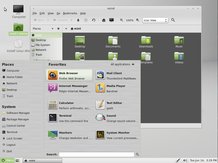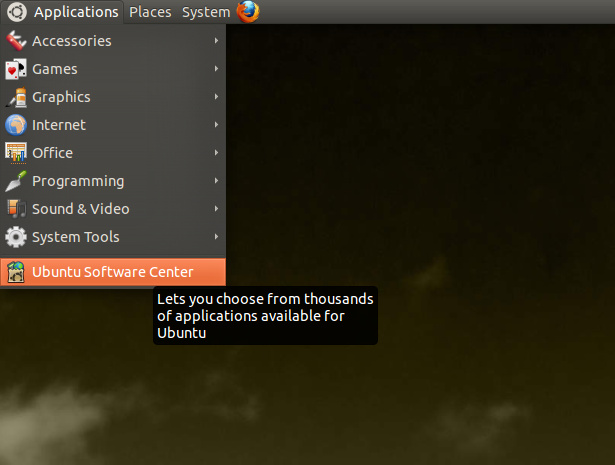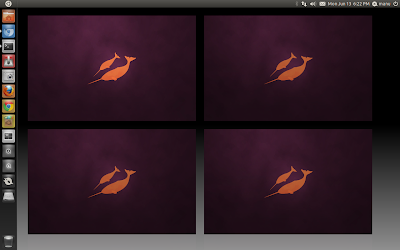Tired of handling your tablet with kid gloves? Go ahead, take them off -- a Toughbook slate is heading your way.
Labels
ATnT
IE 9
LG
LibreOffice
Linux
Skype
T-moblie
Ubuntu
acer
airtel
amazon
amd
android
apple
archos
asus
atrix
blackberry
bosch
camera
chrome 11
chrome os
chromebook
chromium
cloud computing
computex 2011
dell
discussion
facebook
fedora 15
firefox 5
flyer
galaxy
gaming
google
hp
intel
ios
ios 5
ipad
iphone
iphone 4
ipod
laptops
lenovo
microsoft
motorola
natty narwal
new tech
nexus s
ngp
nintendo
nokia
nvidia
optimus
optimus 2X
phone
playbook
playstation
qriocity
samsung
sandy bridge
sony
sony ericsson
sprint
tablet
thinkpad
ubuntu 11.04
ubuntu studio 11.04
vodafone
windows 7
windows 8
windows phone 7
xoom
Saturday, June 18, 2011
LG Revolution review
The army of high-speed broadband phones is actively seeking new recruits to join its rapidly-growing force, and the LG Revolution is the latest to graduate from boot camp. We've witnessed the emergence of three Verizon LTE handsets in as many months, beginning with the HTC Thunderbolt and the Samsung Droid Charge a few weeks later. As if this wasn't enough choice to tempt your tastebuds already, the LG Revolution -- the entertaining climax to the classic 4G trilogy -- was born one full moon after that. With three options, all so close to each other in dimension and features, it's natural to compare all of 'em and make the call on which one is the best of the bunch. Is LG's first crack at Verizon's LTE network truly a game-changer, as its name suggests? Or does this Revolution fail to even get its feet off the ground? Read on after the break to find out.
Powertop 2.0 – saving power under Linux
Powertop, a tool for detecting power wasters under Linux, is about to make a generational jump: version 2.0 provides improved diagnostic options and a redesigned user interface. It also offers a simple, manual way of enabling numerous power-saving features that can noticeably extend the battery life of notebooks.
Currently available as beta version 1.98, Powertop 2.0 is nearing completion. The second generation Linux program for tracking down power wasters has been largely rewritten. Developer Arjan van de Ven explains the reasons for the rewrite in his release email for the first beta, which was released at the beginning of the year: the codebase for the first generation of Powertop had grown rather out of hand after many new features were added.
10 best Linux distros for 2011 -2
6. The best distro for netbooks: Jolicloud 1.2
As we're now in the thick of another age of cloud computing, it's only fair that we look at a Linux distribution that's closer to the cloud than most. Jolicloud is an unusual distribution because it manages to bridge the gap between local applications and those online by creating its own desktop interface.
It does this by linking your local user account to one on Jolicloud's servers, which are then used to manage your applications and data though Dropbox and Google Docs. You can install word processors, media tools like VLC, games and many other applications, many of which already have a cloud basis. But you don't notice.
The desktop is cleverly designed to hide the custom browser when it's running so that you can't easily tell the difference between editing a Google doc online, for example, or using OpenOffice.org Writer.
10 best Linux distros for 2011 -1
 These three attributes are unique to each Linux distribution. But at the same time, each Linux distribution is at liberty to take and mix whatever it wants from any other.This creates a rather unique situation, where good ideas quickly spread, and bad ones fail. And as a result, there are dozens of distribution updates each month, hundreds each year, in a race to leap-frog each other in the race to the top of the DistroWatch.com charts.
These three attributes are unique to each Linux distribution. But at the same time, each Linux distribution is at liberty to take and mix whatever it wants from any other.This creates a rather unique situation, where good ideas quickly spread, and bad ones fail. And as a result, there are dozens of distribution updates each month, hundreds each year, in a race to leap-frog each other in the race to the top of the DistroWatch.com charts.This is why the answer to the question of which distribution is best for you changes with the tides, and why we're keen to keep on top of distribution developments.
LibreOffice 3.4 released:A worthy replacement for premium Office Suites
Microsoft seems to have a tough ride ahead, they seem to have lost the patent case for its Office suite. Now open source tools from Open Office.Org and LibreOffice Suites are competing aggressively with MS Office for market share. The main reason is the Open Source tag associated with the first two choices. It is inexpensive and enjoys backing from a large community of developers. Today let us take a look at the latest release from the LibreOffice Suite- the LibreOffice 3.4.
Friday, June 17, 2011
faster: Firefox 5 now gets speedy (not SPDY)

From the 'But I Just Got Used to Firefox 4' files:
Firefox 5 is nearing completion and likely will be out next week. As opposed to Firefox 4 which introduced a new UI, tab panorama, jetpack, sync and apptabs, Firefox 5 sure does feel a bit 'light' on the big features side.
It does however have at least on amazing under the hood feature that will make Firefox 5 the fastest Mozilla browser ever. Unfortunately Mozilla's product people haven't chosen to productize the feature name but that doesn't make it any less important.
Firefox 5 is nearing completion and likely will be out next week. As opposed to Firefox 4 which introduced a new UI, tab panorama, jetpack, sync and apptabs, Firefox 5 sure does feel a bit 'light' on the big features side.
It does however have at least on amazing under the hood feature that will make Firefox 5 the fastest Mozilla browser ever. Unfortunately Mozilla's product people haven't chosen to productize the feature name but that doesn't make it any less important.
How to install Firefox 5 on Linux Mint, Ubuntu, Debian, Fedora, Opensuse,
. or any other Linux distribution.
This howto explains how to install Firefox 5 RC on Linux distros, without replacing your current Firefox installation.
Firefox 5 Release Candidate has been released on June 16, 2011.
The final release date is set to June 21.
The final release date is set to June 21.
More information on Firefox release dates, beta, aurora and nightlies on the official releases wiki.
4 Tricks with sudo
I think that sudo is become a wide used command with Ubuntu, where you don’t even have a root password, before that probably it was used only in some data-centers to restrict access to some commands.
sudo allows a permitted user to execute a command as the superuser or another user, as specified in the sudoers file.
In this article I will show some uses a little less common for this command, for a general description of the command you could read the page about sudo on wikipedia
1)
sudo !!
you wanted to give a command as root but you forgot to use sudo ? Don’t worry with this command you’ll use the history combined with sudo, the argument
!! has the same meaning that !-1 , so this command runs your last command as root.Obviously this could be used also as
Wednesday, June 15, 2011
Tuesday, June 14, 2011
Top 6 Eyecandy Compiz Animations and Effects that Comes with Compiz Experimental Plugins
Who doesn't like some eyecandy for their desktops, definitely not me. Compiz has enthralled Ubuntu users for years now. When GNOME officially ditched Compiz for Mutter for its next version, Ubuntu decided to stick with Compiz for its Unity Shell. Compiz is actively being developed now and we can expect a lot of surprises for next major Ubuntu release, Ubuntu 11.04 "Natty Narwhal". Here is a collection of Compiz experimental plugins that does not come with the default package and which is definitely going to blow you away.
5 Useful Compiz Tweaks for Ubuntu 11.04 Natty Narwhal
I have been a Compiz fan ever since I started using Linux. Compiz is also a very integral part of Ubuntu, more so with the introduction of new Unity desktop for Ubuntu 11.04 Natty Narwhal. There are many Compiz effects that are not enabled by default and some of them are really good IMO. Useful Compiz tweaks for Ubuntu 11.04. Note: Post not meant for advanced users.
Chrome nearly replaced Firefox in Ubuntu Linux, Mark Shuttleworth says part 4
Resume............
Page 4 of 4
"Very simplistic characterizations of any large group are almost certainly going to turn out to be false," he said. "The company has been caught abusing a monopoly position. I think that's terrible. They're not the first to do it. They're not the last to do it, either. The question really is, can one engage and work with them and compete with them on an evenhanded basis?"
Chrome nearly replaced Firefox in Ubuntu Linux, Mark Shuttleworth says part 3
Page 3 of 4
"Everybody has the things they want to work on," Shuttleworth said. "I think it's a little tasteless for folks who work for competitors to jump up and down and say that Canonical doesn't contribute. I find that bizarre."
Why Mark Shuttleworth doesn't own a smartphone
Shuttleworth spent $20 million to become a space tourist in 2002, but hasn't ponied up $200 for a smartphone.
"I'm the last of the non-smartphone holdouts," Shuttleworth said. "Someone described my phone as being designed not to get stolen."
Chrome nearly replaced Firefox in Ubuntu Linux, Mark Shuttleworth says part 2
continue.............
"The Linux graphics stack enablement isn't great," Shuttleworth said. "There are a lot of devices where [Unity] is not an appropriate choice. So we've been working on a 2D version of Unity, which preserves all the same semantics and behaviors, but it's visually less intense."
Chrome nearly replaced Firefox in Ubuntu Linux, Mark Shuttleworth says
Canonical CEO Mark Shuttleworth lavishes praise on Google and the Chrome browser part 1
anonical founder Mark Shuttleworth is a big fan of Google Chrome, and says the browser could replace the standard Firefox in future versions ofUbuntu Linux.
Shuttleworth, the onetime space tourist, is spending his days on Earth to guide Canonical through a crossroads.
The overhauled user interface Canonical created for Ubuntu was greeted with a mixed reaction upon its release two months ago. But Canonical may not be done making radical changes to what is likely the world's most popular Linux desktop OS.
REVIEW: Samsung Galaxy S 2 – The new king of Android?
Not long ago, Samsung was barely a blip in the Android space – back when the smartphone maker gave us devices like theGalaxy and Behold 2, and you could tell that Samsung wasn’t taking Android seriously at the time. However, in early 2010 the Galaxy S was announced, and became an instant hit. Now it’s time for the Galaxy S to take a step down and make way for its successor. The Galaxy S 2 takes everything we loved about the original, brings a slimmer body, comes with a dual-core processor, and is beefed up in almost every way. So, we just had to take the Samsung Galaxy S 2 for a review test drive.
You’re probably wondering if this the new king of Android phones. Read the rest of the review to find out!
How-To: Turn off in-app purchases on iPhone, iPod Touch and iPad


With in-app purchases getting increasingly popular among iOS developers, it’s easy to spend a small fortune on extra functionalities modern apps offer
How-To: Turn off cookies on your Windows Phone 7 smartphone

With the rising privacy concerns and the media attention this issue gets
Monday, June 13, 2011
Optimus 2X vs iPhone4_WebBrowsing speed!!
SPEED TEST
video recording quality comparision
Sunday, June 12, 2011
2 Ways to Install the Latest Flash Player in Ubuntu 11.04
In this tutorial I'll explain two different methods of installing the latest version of Flash Player in Ubuntu Natty Narwhal. The first one is the manual way, which means we will have to download the Flash plugin from the Adobe website and copy it manually in the ~/.mozilla directory. The second way is straightforward by using Ubuntu's multiverse repositories. This tutorial applies for the 32-bit version.
Install Adobe Flash Player Manually
First, we will need to download the .tar.gz archive from the official website. The current version is 10.3.181.22. Next, open a terminal, go to where you saved the archive and uncompress it:
After uncompressing it there will be a directory, called usr, and the actual plugin, libflashplayer.so. We'll need only this file. The next step is to create a directory called plugins inside the ~/.mozilla folder, where ~ is your home directory (e.g. /home/username/). To do this type:
And now let's copy the plugin inside the newly created directory:
This should do it. Restart Firefox and Flash videos should be working now. This location (~/.mozilla) is a folder where most of the web browsers are looking for the plugin, not just Firefox. So once it's set up in there Konqueror or Epiphany will be able to use it too.
tar -xzf install_flash_player_10_linux.tar.gz
mkdir -p ~/.mozilla/plugins
cp libflashplayer.so ~/.mozilla
Install Adobe Flash Player from Ubuntu's Repositories
Flash Player is also shipped in Ubuntu's multiverse repositories. To install it using this method, open a terminal and type in the following commands:
The difference here is that this method installs it in /usr/lib/flashplugin-installer/libflashplayer.so, while the manual one lets you install as normal user.
sudo apt-get update sudo apt-get install flashplugin-installer
Install from the Repositories Using Ubuntu Software Center
This is the graphical way of doing exactly what we did in the previous method so if you did that already there is no need to repeat it. Ubuntu Software Center is a friendly GUI (Graphical User Interface) frontend to APT, the package management system used by Ubuntu.
To start it, go to the Applications menu, then click on the Ubuntu Software Center entry:

To start it, go to the Applications menu, then click on the Ubuntu Software Center entry:

10 reasons why Chromebooks will be a huge success
As June 15th nears, the folks at Google must be busy biting their nails off. This is the big G’s first step into the world of operating systems, and they want everything to go just right. With the release of Chromebook, they will be competing with 3 operating systems which have been around for a very long time. Whether Google will manage to topple them or not, only time can tell; however, there are a few reasons that this might work out pretty well for them. Here are ten such reasons why Chromebooks will be a huge hit.
Subscribe to:
Comments (Atom)








